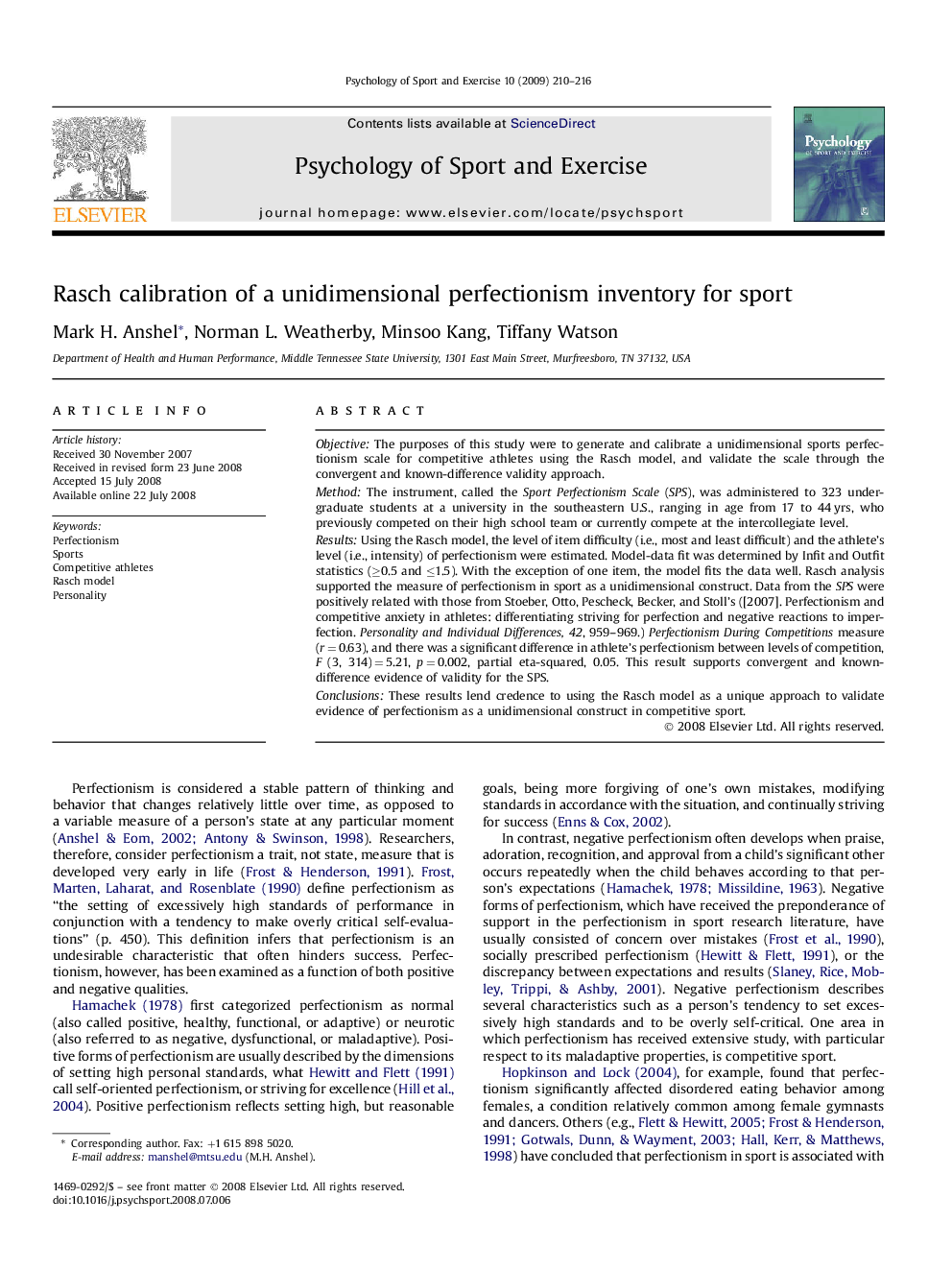| Article ID | Journal | Published Year | Pages | File Type |
|---|---|---|---|---|
| 894836 | Psychology of Sport and Exercise | 2009 | 7 Pages |
ObjectiveThe purposes of this study were to generate and calibrate a unidimensional sports perfectionism scale for competitive athletes using the Rasch model, and validate the scale through the convergent and known-difference validity approach.MethodThe instrument, called the Sport Perfectionism Scale (SPS), was administered to 323 undergraduate students at a university in the southeastern U.S., ranging in age from 17 to 44 yrs, who previously competed on their high school team or currently compete at the intercollegiate level.ResultsUsing the Rasch model, the level of item difficulty (i.e., most and least difficult) and the athlete's level (i.e., intensity) of perfectionism were estimated. Model-data fit was determined by Infit and Outfit statistics (≥0.5 and ≤1.5). With the exception of one item, the model fits the data well. Rasch analysis supported the measure of perfectionism in sport as a unidimensional construct. Data from the SPS were positively related with those from Stoeber, Otto, Pescheck, Becker, and Stoll's ([2007]. Perfectionism and competitive anxiety in athletes: differentiating striving for perfection and negative reactions to imperfection. Personality and Individual Differences, 42, 959–969.) Perfectionism During Competitions measure (r = 0.63), and there was a significant difference in athlete's perfectionism between levels of competition, F (3, 314) = 5.21, p = 0.002, partial eta-squared, 0.05. This result supports convergent and known-difference evidence of validity for the SPS.ConclusionsThese results lend credence to using the Rasch model as a unique approach to validate evidence of perfectionism as a unidimensional construct in competitive sport.
